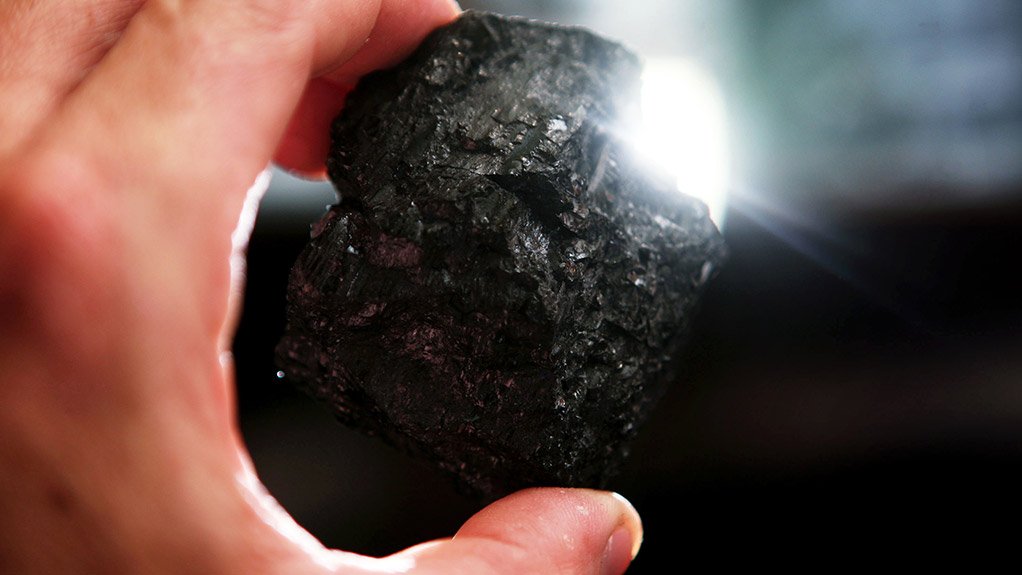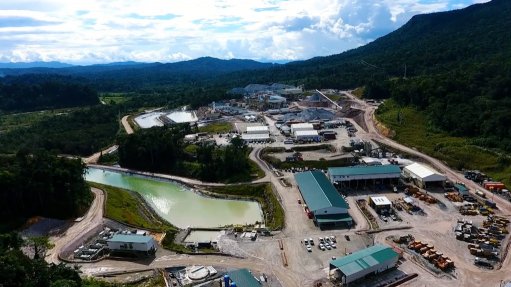Coal research needs blue-sky approach – professor


BREAKTHROUGHS NEEDED Blue-sky research, using an open-ended, non-defined type of thinking, is needed to sustain the growth in coal research and provide impetus to increase this growth in future
While coal research in South Africa is alive and, at the very least, slowly increasing, significant and exponential technological and scientific advances using blue-sky research are needed to sustain momentum and provide impetus.
This is the view of North-West University School of Chemical and Minerals Engineering associate professor Quentin Campbell, who notes that, while blue-sky research projects – which use an open-ended, non-defined type of thinking – are difficult to justify, have poorly defined returns, are rarely economical and are mostly indefinite in terms of time; it is more difficult to be innovative and excited when only goal-driven research dictated by means to an end is used.
“A good balance between the ‘pushing forces’ of research and the ‘pulling forces’ of industry should exist,” he emphasises.
Campbell says almost all coal research worldwide pertains to the environment, efficiency or safety, or a combination of these.
Meanwhile, coal research in South Africa is focused on the three recurring themes of increased yields; dry beneficiation, a technology that can be of particular significance in an arid country such as South Africa; and the recovery and dewatering of fines, which entails using the many millions of tons of good- quality coal available in South Africa’s fines ponds.
As many developed countries are trying to move away from fossil fuels for their energy requirements and the world is reaching the end of its easy-and-cheap coal era, a perception that the global coal industry is dying and that it has no future, has been created.
Despite this, South Africa, among other developing countries, is undeniably tied to coal and this association will continue well into the future.
Campbell says this negative perception of coal is likely to influence the sentiment of a young researcher looking for a field of study, yet the irony is that more research in coal is likely to lead to a less negative impact, as efficiencies increase and techniques, such as sulphur and carbon capture, become technically and financially more viable.
Further, the fact that coal is not usually considered as an interesting commodity from a technical point of view also contributes to the lack of interest in coal research.
Campbell suggests that the coal industry and, to a limited extent, government, identify and empower their young scientists and engineers by affording them the opportunity of further study to increase the number of coal postgraduates in South Africa.
He says it may be surprising to some that the greatest problem facing coal researchers in South Africa is not funding, but rather the availability of postgraduate students to engage in research.
“It is not difficult to procure project funding for specifically applied research projects, but research in coal is not popular enough to draw the necessary numbers of students to do the work.”
Campbell reiterates that it is not sufficient to simply “throw a lot of money at the problem”, which is a lack of coal researchers.
However, when research association Coaltech was established in 1999 – as a cooperative research initiative to revitalise industry-focused research in the fields of underground and surface mining, geology and geophysics, coal preparation, environment, engineering and the human and social issues related to coal – its funding model has been providing opportunities for students and researchers since the late 1990s to be active in coal research.
The cooperative nature of Coaltech’s structure enables research, which would otherwise have been done in house by industry, to be shared and published in the public domain.
Another means through which interest and research in coal can be bolstered is by better informing schoolchildren about coal and fossil fuels, concentrating not only on the negative aspects but also on the real and exciting opportunities that exist in developing technology that make using coal friendlier and cleaner.
Campbell says gone are the days when coal was regarded as cheap and easy – the technical challenges of making dwindling current resources and difficult new resources relevant in traditional markets are enormous.
He predicts that, in terms of future research, economic realities will prevail and dictate the direction that industry will take. For example, as water becomes more expensive, industry will invest more time, effort and money in dry beneficiation.
Comments
Press Office
Announcements
What's On
Subscribe to improve your user experience...
Option 1 (equivalent of R125 a month):
Receive a weekly copy of Creamer Media's Engineering News & Mining Weekly magazine
(print copy for those in South Africa and e-magazine for those outside of South Africa)
Receive daily email newsletters
Access to full search results
Access archive of magazine back copies
Access to Projects in Progress
Access to ONE Research Report of your choice in PDF format
Option 2 (equivalent of R375 a month):
All benefits from Option 1
PLUS
Access to Creamer Media's Research Channel Africa for ALL Research Reports, in PDF format, on various industrial and mining sectors
including Electricity; Water; Energy Transition; Hydrogen; Roads, Rail and Ports; Coal; Gold; Platinum; Battery Metals; etc.
Already a subscriber?
Forgotten your password?
Receive weekly copy of Creamer Media's Engineering News & Mining Weekly magazine (print copy for those in South Africa and e-magazine for those outside of South Africa)
➕
Recieve daily email newsletters
➕
Access to full search results
➕
Access archive of magazine back copies
➕
Access to Projects in Progress
➕
Access to ONE Research Report of your choice in PDF format
RESEARCH CHANNEL AFRICA
R4500 (equivalent of R375 a month)
SUBSCRIBEAll benefits from Option 1
➕
Access to Creamer Media's Research Channel Africa for ALL Research Reports on various industrial and mining sectors, in PDF format, including on:
Electricity
➕
Water
➕
Energy Transition
➕
Hydrogen
➕
Roads, Rail and Ports
➕
Coal
➕
Gold
➕
Platinum
➕
Battery Metals
➕
etc.
Receive all benefits from Option 1 or Option 2 delivered to numerous people at your company
➕
Multiple User names and Passwords for simultaneous log-ins
➕
Intranet integration access to all in your organisation



















